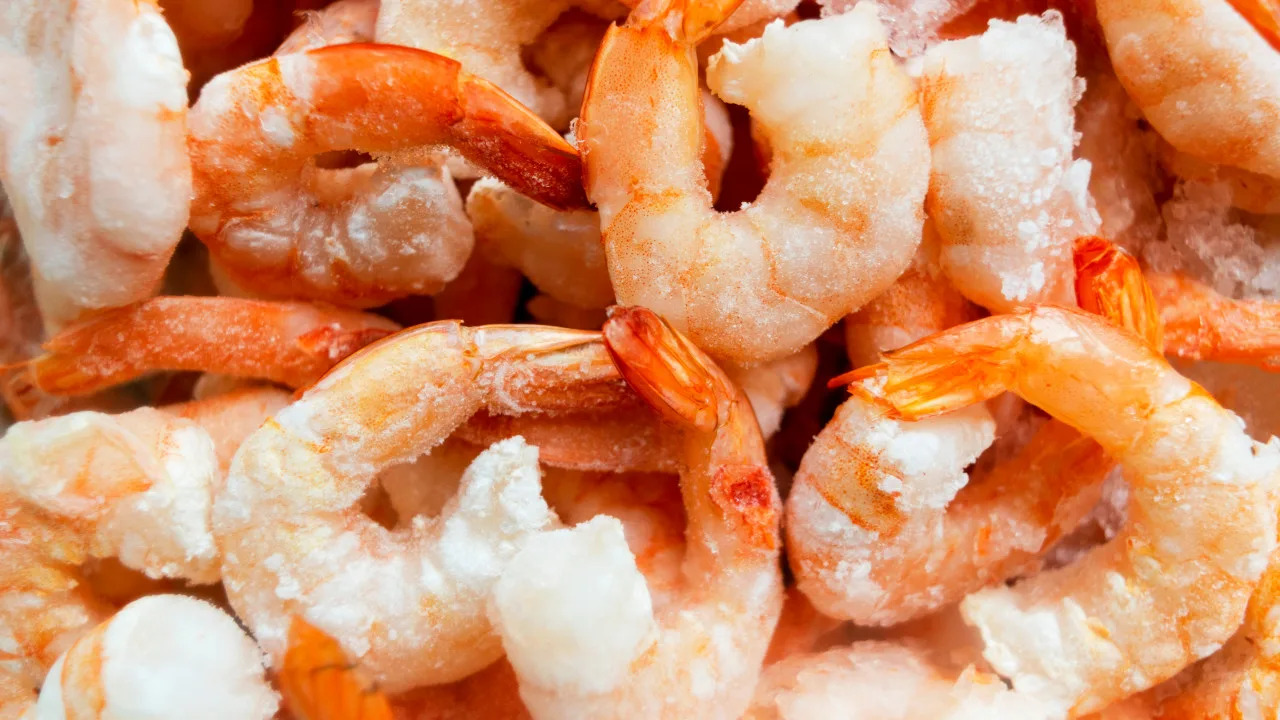Earlier this month, the FDA announced a recall of frozen shrimp sold at Walmart that has been expanding week by week. According to the original notice, the shrimp in question are potentially radioactive, prompting their immediate removal from shelves.
As of August 27, the Food and Drug Administration has expanded the recall, linking additional shrimp products sold at Kroger and other retailers nationwide to the same concern. The ongoing recalls are tied to an investigation into conditions where the shrimp may have been prepared, packed or stored in an insanitary manner.
😋😋SIGN UP to get delicious recipes, handy kitchen hacks & more in our daily Pop Kitchen newsletter🍳🍔
What is Cs-137?
Cesium-137 is a man-made radioisotope. The FDA says “traces of Cs-137 are widespread and can be present in the environment at background levels, and at higher levels in water or foods grown, raised or produced in areas with environmental contamination.” But the real risk comes from long-term, repeated exposure to even low doses. Over time, that can raise a person’s risk of cancer because of “damage to DNA within living cells of the body.”
Tracking the Shrimp Recall
According to the noitce, the FDA detected Cs-137 in a single shipment of imported frozen shrimp from PT. Bahari Makmur Sejati, though that shipment never entered U.S. commerce. The level of Cs-137 in the detained shipment was said to be about 68 Bq/kg—which is apparently well below the FDA’s “Derived Intervention Level of 1,200 Bq/kg.” At this point, the product wouldn’t necessarily pose an immediate hazard to consumers, though steering clear of products with similar low levels of Cs-137 is a precaution meant to reduce exposure to radiation that could have major health impacts over time.
The main health concern with long-term, repeated low-dose exposure—like consuming contaminated food or water over time—is an increased risk of cancer. This happens because of damage to DNA within living cells. For more information on Cs-137 and its effects on health, you can check out resources from the Centers for Disease Control and Prevention’s Agency for Toxic Substances and Disease Registry.
List of Recalls Involved in the Contamination
-
August 21, 2025: Southwind Foods, LLC Recall
-
August 22, 2025: Beaver Street Fisheries, LLC Recall
-
August 27, 2025: AquaStar (USA) Corp Recall – Kroger Brand
-
August 28, 2025: AquaStar (USA) Corp Recall – Aqua Star Brand
Related: This Popular Snack Brand Is Recalling a Classic Sweet Over the Potential Presence of Mold
Which Stores Are Impacted?
As of the latest recall update, the affected shrimp were sold at Baker’s, Gerbes, Jay C, Kroger, Mariano’s, Metro Market, Pay Less Supermarkets and Pick ‘n Save locations across the following states between July 24 and August 11, 2025:
Alabama, Arkansas, Georgia, Illinois, Indiana, Kansas, Kentucky, Michigan, Missouri, Mississippi, Nebraska, Ohio, South Carolina, Tennessee, Virginia, Wisconsin and West Virginia.
Product descriptions of each of the identified products in the recall can be found here.
What to Do Next
If you have any of the products listed above, do not eat them—throw them away completely. Distributors and retailers should also dispose of the products immediately and avoid selling or serving them. Finally, if you think you may have been exposed to elevated levels of cesium, it’s important to contact a healthcare provider right away. To report a complaint or adverse event in relation to this recall (or any others for that matter) visit Industry and Consumer Assistance.
Related: Aldi’s Adorable $7 Fall Find is the Perfect Way to Add Seasonal Charm to the Dinner Table
This story was originally reported by Parade on Sep 2, 2025, where it first appeared in the Food & Drink section. Add Parade as a Preferred Source by clicking here.
Yahoo News – Latest News & Headlines
Read the full article .


